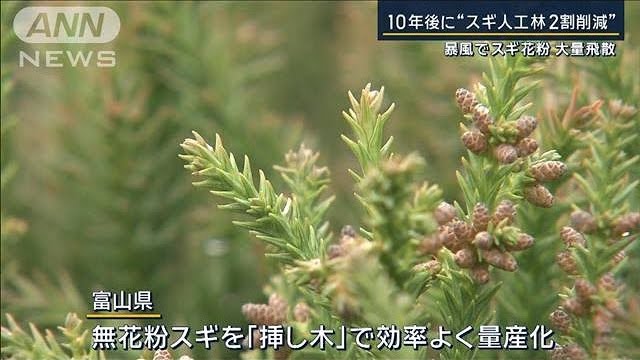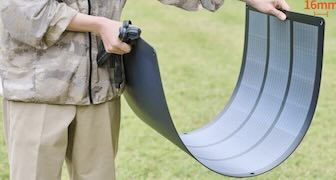Toyama, Feb 28 (News On Japan) - As Japan enters peak pollen season, the battle against cedar pollen allergies intensifies, with questions remaining on the effectiveness of re-planting forests with pollen-free trees.

Tokyo confirmed the start of the cedar pollen season on February 9th, a day earlier than last year and six days ahead of the average.
Dr. Yoneyuki Ito of Miyauchi Train Ear, Nose, and Throat Clinic has noted a surge in patients, predominantly affected by cedar pollen, with about 70% also suffering from cypress pollen allergies. Pollen allergies trigger exaggerated immune responses in the body, leading to allergic reactions when individual tolerance levels are exceeded.
A long-time allergy sufferer in their 40s likened the condition to pollution, affecting eyes, throat, ears, and skin. A newcomer to pollen allergies in their 20s expressed a desire for measures to prevent pollen dispersion.
Prime Minister Kishida aims to halve cedar pollen by 2050, with a goal to reduce artificial cedar forests by 20% within a decade. This includes promoting the planting of low-pollen varieties.
Leading the charge against pollen is Toyama Prefecture, where efforts to mass-produce pollen-free cedar through cutting technology have been successful. Toyama is unique in producing all new cedar saplings as pollen-free.
In 1992, a pollen-free cedar was discovered at a shrine in the prefecture, leading to the development of high-quality, pollen-free cedar wood. The process from discovery to commercialization took 20 years, gaining attention when the then Emperor planted one of these trees seven years ago. His subsequent poem reflecting concern for pollen allergy sufferers marked a turning point in allergy mitigation efforts.
Toyama has been replacing pollen-producing cedars with pollen-free varieties for the past 12 years, but only about 1% of cedar forests have been converted so far. The government aims to have 90% of saplings be low-pollen cedars within a decade, but currently, only 50% meet this criterion. Production methods have been a bottleneck, with traditional seed breeding resulting in a 50% loss due to pollen-bearing saplings. However, cutting technology allows for 100% pollen-free sapling production. Seedlings take three years to reach marketable size, while cuttings can be sold as saplings within a year. Toyama's shift to cutting technology aims to increase production from 100,000 to over 200,000 saplings annually.















